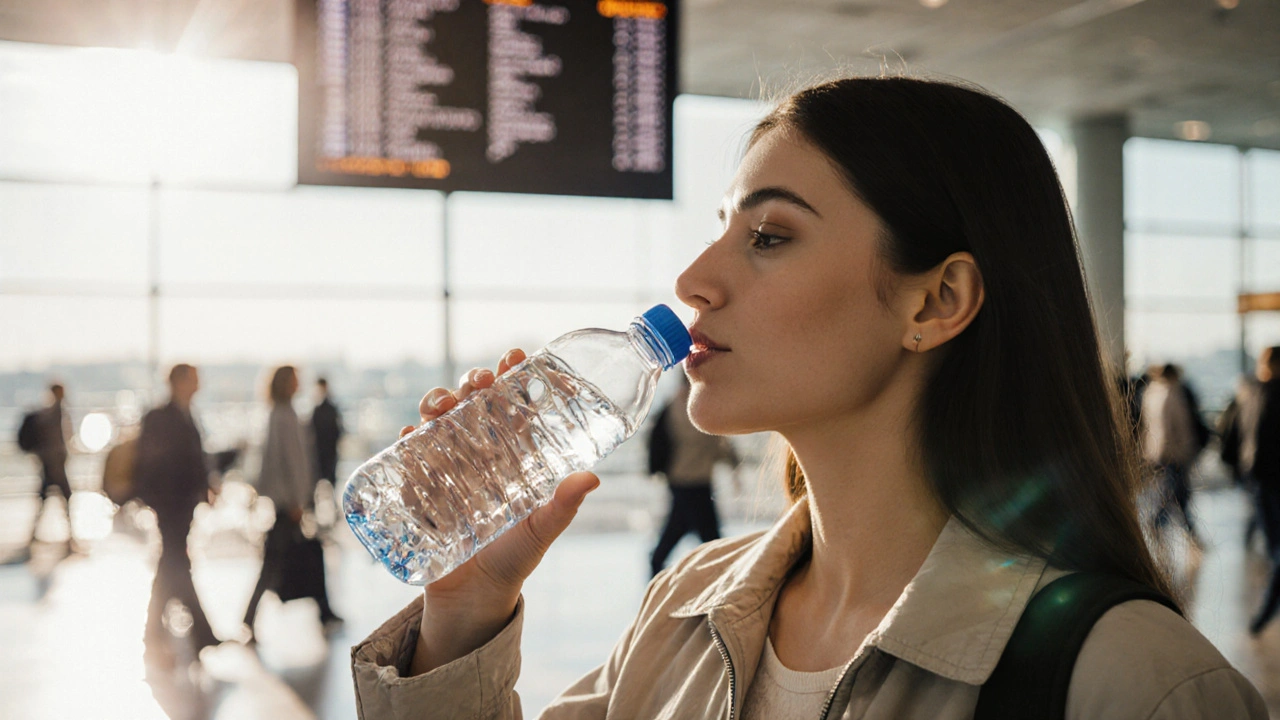About one-third of people feel queasy while travelling. Travel nausea comes fast and ruins trips, but you can usually prevent it or stop it quickly if you know what to do. Read on for straight-up tips that work for cars, boats, planes, and even VR.
Motion sickness happens when your inner ear (balance system) and your eyes send mixed signals to your brain. If your body feels movement but your eyes don’t agree—like reading in a car—you get nausea, sweating, or dizziness. Kids, pregnant people, migraine sufferers, and people new to motion are more likely to get hit hard.
Different travel types trigger different problems. Boats cause strong inner-ear motion; cars and buses cause short, repeated turns; planes can cause subtle turbulence that confuses your balance. Knowing the trigger helps pick the right fix.
Before you travel: pick the right seat. Sit where motion feels smallest—front of a car, over the wing on a plane, middle of a boat. Face forward and look at the horizon. Avoid heavy meals, alcohol, and greasy foods right before travel. Stay hydrated and get fresh air when you can.
During travel: keep your head still and rest it against a headrest. Use a fixed gaze—look at a stable point in the distance. Try slow, deep breaths and splash cool water on your face if you start to feel off. If reading or screens trigger nausea, stop using them and close your eyes.
Simple over-the-counter options: dimenhydrinate (Dramamine) and meclizine (Bonine) are common and help for many people. Take them 30–60 minutes before travel for best effect. For longer trips, a scopolamine patch (prescription) behind the ear works well for sea voyages and multi-day travel; apply it the night before if possible.
Natural and non-drug aids: ginger (candied ginger, ginger capsules, or ginger tea) eases nausea for many folks. Acupressure wristbands press a point on your wrist (P6) and can reduce symptoms for some. Peppermint candy or oil can help calm your stomach quickly.
Special groups: if you’re pregnant, check with your clinician—ginger and wristbands are usually safe; many anti-motion drugs aren’t recommended without advice. For kids use age-appropriate doses or pediatric formulations and ask a doctor before medicating young children.
When to see a doctor: if vomiting won’t stop, you can’t keep liquids down, you get signs of dehydration, or nausea is linked to fainting or severe headache. Also see a clinician if motion sickness starts suddenly in someone who never had it before.
Quick checklist before your next trip: pick the right seat, take an OTC pill if you’ve had trouble before, pack ginger or pressure bands, avoid heavy meals, and get fresh air. Small steps often make the trip comfortable again.

Discover how proper hydration stabilizes the inner ear, reduces nausea, and keeps motion sickness at bay. Get practical water‑drinking schedules, fluid choices, and extra tips for comfortable travel.
Thyroid cancer is highly treatable, with most patients living normal lives. Learn about the main types-papillary, follicular, medullary, and anaplastic-and how radioactive iodine therapy and thyroidectomy are used to treat them. Understand when treatment is necessary and what to expect after surgery.
Medications cause side effects because they interact with more than just their intended target. From genetic differences to off-target effects and drug interactions, science explains why reactions happen-and how we’re learning to prevent them.
Twenty-seven U.S. states have special rules restricting generic substitution for narrow therapeutic index (NTI) drugs like warfarin, levothyroxine, and lithium. These laws vary widely - from outright bans to dual consent requirements - creating a patchwork that affects patient safety, pharmacy workflows, and drug costs.
Clomid, known for helping with ovulation, is a go-to fertility drug for women and can help men, too. This article breaks down how Clomid works, who it’s for, what to expect, and the real-life experiences that come with it. If you’re curious about side effects, success rates, or want some tips for making treatment smoother, you’ll find answers here. We explore both science and stories, so you walk away with practical, real-world info. No dry medical talk—just honest facts.
Ciclopirox is no longer just a nail fungus treatment. New research shows promise in cancer, antibiotic-resistant infections, and advanced topical delivery - making it one of the most surprising drug repurposing stories of 2025.